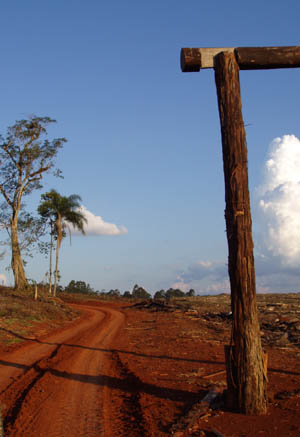Brazil's deforestation pledge
 The Brazilian government has pledged to end net deforestation by 2015.
The Brazilian government has pledged to end net deforestation by 2015.
It's one of the key points in a tentative climate change plan, which stops short of setting defined targets for reducing greenhouse emissions.
The plan, which outlines how Brazil will help minimise climate change, and how it will adapt to it - was promised a year ago by President Lula.
Greenpeace have criticised the report for simply highlighting existing proposals and not explaining how they would be brought into action.
This news follows an announcement in August that Brazil has launched an international fund to protect the Amazon and help climate change.
The fund will promote alternatives to forest-clearing for people living in the forest and support conservation initiatives and sustainable development. Brazilian officials who are seeking donations for the fund hope to secure $21bn by 2021.
This was seen as major breakthrough by environmentalists as it is the first time Brazil has acknowledged the inextricable link between deforestation and climate change.
In the provisional version which will go for public consultation no specific targets are set for reductions in greenhouse gas emmisisons among the industrial sectors. But with deforestation accounting for about 75% of Brazil's emmissions, it sets out a timetable to reduce forest loss to a point where by 2015, more Brazilian trees are being planted than cut down.
According to the Environment Minister, Carlos Minc, this will be done through a programme of restoring native forests, as well as crackdowns on illegal logging. Other measures in the document are incentives to improve energy efficiency and to encourage renewable energy production.